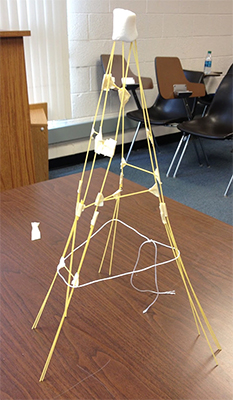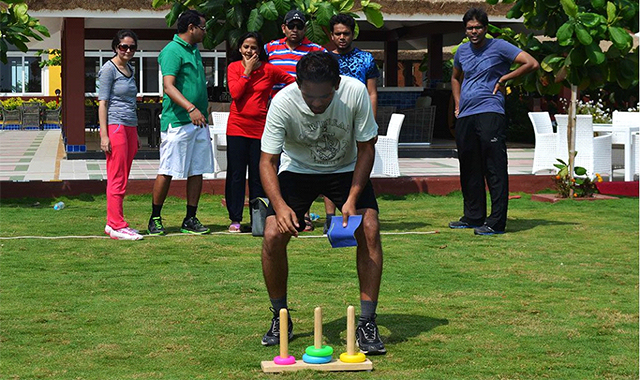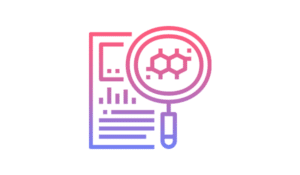Program
TAPMI Train The Evaluators Program |Behavioral Assessment During Admission Process
Objective
The T.A. Pai Management Institute, fondly known as TAPMI is located in the city of Manipal in Karnataka. With academic rigour and experiential learning at its core, TAPMI’s Post Graduate Diploma in Management Programs are approved by All India Council for Technical Education (AICTE) since its constitution.
Established in 1980, it is one among the 7 institutes in India and 5% of the top business schools worldwide to have been accredited with the illustrious Association to Advance Collegiate Schools of Business (AACSB) accreditation, the oldest and toughest accreditation in the world of business education. It is also the 5th institution in India to have both the AACSB as well as Association of MBAs (AMBA) accreditation.
It is hence one of the much sought out institutes for students not just across India, but also across the world. The annual admission process for the institute starts in February. The need articulated to us was to evaluate around 3000 students in the month, in batches of 70 per day. Being big believers in Experiential learning themselves, TAPMI reached out to us to help them devise a way by which behavior assessment of the students could be done in a fairly rapid manner. They three key behaviours they were looking for included:
⦁ Being a Team player
⦁ Taking up Ownership
⦁ Communicating Effectively
One of the core tenets of Experiential learning is that “The way people play is the way people work.” This makes evaluating students through experiential activities a good lens for a quick assessment.
The task for us was to design and train TAPMI evaluators on two activities that bring out these behaviors clearly, so that the evaluators could in turn, conduct those activities for the students participating in the admission process.
Solution
We got to the drawing board and started ideating on, what is the best way to achieve this objective? While exploring various options, we had to keep in mind that the activities should bring out the objectives effectively yet should be comprehensive enough for the evaluators to understand. Also we were acutely aware that it should be fair to all the students who go through the process – and should not lend itself to ambiguity.
The other key challenge was that the activities needed to be of a short duration of maximum 10 minutes so that the whole process could be done rapidly, leaving time for the evaluators to also run their other evaluations.
Two activities were curated for this purpose that met all these criteria. One was called “The Tower of Brahma” and the other was the famous “Marshmallow Challenge.” There were around 8 evaluators who needed to be trained on the activities.
The program was conceived in 4 steps:
⦁ Step1: Understanding of the Experiential learning cycle
This was important since TAPMI themselves use the Experiential methodology. It was important that we were on the same page before we got into the activity itself.
⦁ Step 2: Experiential learning
The 8 evaluators were put through the both the activities, followed by an in-depth debrief. This was followed by a rigorous discussion between our Facilitators and the TAPMI faculty (the evaluators) where we dived deep into all the nuances of the activity and the possible different behaviors it can throw up, with the implications of each. To help prepare them for doing a dry run by themselves as the next step, FocusU also helped the evaluators with a detailed activity script. We also co-created an assessment form that they could use while running the activity. The assessment form detailed out the positive and the negative behaviors that the evaluators needed to watch out for.
⦁ Step 3: Learning by doing
Once the evaluators had no more questions, it was time for them to run these two activities themselves. For this, we called students volunteers. Multiple runs were done, followed by debriefs and discussions, so that the essence of the activity was preserved. This hands-on dummy run was a critical piece of the whole experience in ensuring that during the actual run, it was done extremely professionally by the evaluators
⦁ Step 4: Actual usage in the admission process
On Day 2, the FocusU team was there to overlook the evaluators conduct the activities by themselves. This time actual students applying to the MBA program in TAPMI were the participants. Truth be told, we had to do very little hand-holding or intervention at this stage. No wonder that TAPMI has such a good reputation!


Impact
The TAPMI evaluators went on to do the same activities at different locations in India for their admission and evaluation process. Since they had done the activities under the supervision of FocusU team, they were fully aware of the process and how to identify the behaviors during the activity.
This is what Jeevan J Arakal, one of the Professors had to say about the whole collaboration:
TAPMI deeply values teamwork among program participants, this is reflected in our team-based activity evaluation during the admissions process. In line with this focus we run team building and outbound activities as part of the induction process. These activities focus on collaboration, team building and informal bonding, creating a culture of trust among program participants. Program participants are encouraged to go outside their comfort zone, by actively participating in a combination of indoor and outdoor activities.
As mentioned earlier, we wanted the following outcomes as part of the induction process:
⦁ Teamwork
⦁ Collaboration
⦁ Informal bonding
In consultation with FocusU we devised several activities focused on the following aspects.
⦁ The importance of planning in a team, leadership and clear communication with feedback
⦁ The importance of prioritization in the work that we do
⦁ The contribution that different people in a team bring into a team task
⦁ The impact that each member in a team makes to the overall team
⦁ Success & trust have a domino effect in organizations: success breeds success! And trust given begets trust
⦁ The role of teamwork – and importance of leveraging every single person in a team
@FocusU Engage (India) Private Limited is clearly one of India’s best training organizations. Students greatly benefited from an intensive and high energy collaborative environment.

